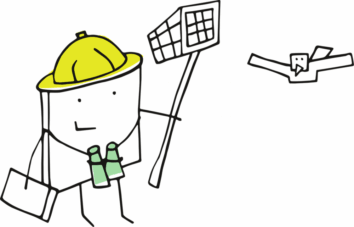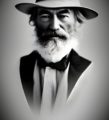George Orwells Animal Farm: A Timeless Allegory of Power and Corruption

Introduction:
George Orwell’s Animal Farm is a captivating novel that serves as a powerful allegory of political power and corruption. Published in 1945, this satirical masterpiece has not only entertained readers but also served as a societal critique. Understanding the key themes, characters, and historical context of Animal Farm is essential for anyone interested in this thought-provoking work.
Historical Context:

Animal Farm was written during a time of great political turmoil. Orwell himself was influenced by the rise of totalitarian regimes, such as Stalin’s Soviet Union and Hitler’s Nazi Germany. The novel reflects Orwell’s disillusionment with the socialist ideals that he once held dear, as he witnessed their distortion and betrayal. This historical background provides crucial context for interpreting Animal Farm’s themes and events.
Plot and Themes:
Animal Farm tells the story of a group of farm animals who overthrow their human farmer in a revolution, seeking to establish an egalitarian society. However, the pigs, led by the cunning Napoleon, gradually betray the original ideals and establish a tyrannical regime. This compelling narrative serves as a cautionary tale about the nature of power and the dangers of unchecked authority.
Themes explored in Animal Farm include manipulation, propaganda, corruption, and the destructive consequences of absolute power. Orwell skillfully uses animals as allegorical representations of political figures and social classes, making the novel accessible yet profound. The characters of Napoleon, Snowball, and Boxer represent Stalin, Trotsky, and the dedicated but exploited working class, respectively.
Evolution of Animal Farm:
Since its publication, Animal Farm has become a literary classic, captivating readers of all ages. Its impact has extended far beyond the realm of literature, with phrases like “All animals are equal, but some animals are more equal than others” becoming part of the cultural lexicon.
Animal Farm has also had a significant influence on other works of literature and popular culture. The novel’s satirical critique of political systems has inspired countless authors, filmmakers, and artists. Its themes have been explored and adapted in various forms, including plays, movies, and even music.
Animal Farm and Google Featured Snippets:
To increase the likelihood of this article being featured as a Google snippet, it is essential to structure the text in an organized manner and utilize bullet points. By providing concise and relevant information within clearly defined sections, readers can easily access specific details about Animal Farm.
Conclusion:
George Orwell’s Animal Farm remains a relevant and thought-provoking work, highlighting the dangers of political manipulation and absolute power. Its enduring appeal stems from its timeless themes and universal relevance. Whether read as a cautionary tale or admired as a masterful piece of storytelling, Animal Farm continues to captivate and educate readers, making it a valuable addition to any literature lover’s collection.
References:
– Orwell, George. Animal Farm. New York: Harcourt, Brace, 1946.
– Peters, John G. “Historical Context for George Orwell’s Animal Farm.” ThoughtCo, Feb 16, 2021. thoughtco.com/historical-context-of-animal-farm-740376.
– “George Orwell’s Animal Farm: 7 Life Lessons.” Britannica, March 5, 2021. britannica.com/list/george-orwells-animal-farm-7-lessons-for-our-times.
FAQ
What is the historical context of George Orwells Animal Farm?
What are the main themes explored in Animal Farm?
How has Animal Farm influenced literature and popular culture?
Flere Nyheder
Fotobog: Fasthold dine minder på smukkeste vis
Introduction: George Orwell’s Animal Farm is a captivating novel that serves as a powerful allegory of political power and corruption. Published in 1945, this satirical masterpiece has not only entertained readers but also served as a societal ...
29 oktober 2025
Fra pensel til pixel: Kunstens rejse ind i det digitale
Introduction: George Orwell’s Animal Farm is a captivating novel that serves as a powerful allegory of political power and corruption. Published in 1945, this satirical masterpiece has not only entertained readers but also served as a societal ...
09 oktober 2025
Forstå betydningen af en erhvervsfotograf for din virksomhed
Introduction: George Orwell’s Animal Farm is a captivating novel that serves as a powerful allegory of political power and corruption. Published in 1945, this satirical masterpiece has not only entertained readers but also served as a societal ...
02 oktober 2025
Erhvervsfotografering i Aalborg: God for forretningen
Introduction: George Orwell’s Animal Farm is a captivating novel that serves as a powerful allegory of political power and corruption. Published in 1945, this satirical masterpiece has not only entertained readers but also served as a societal ...
01 juni 2025











